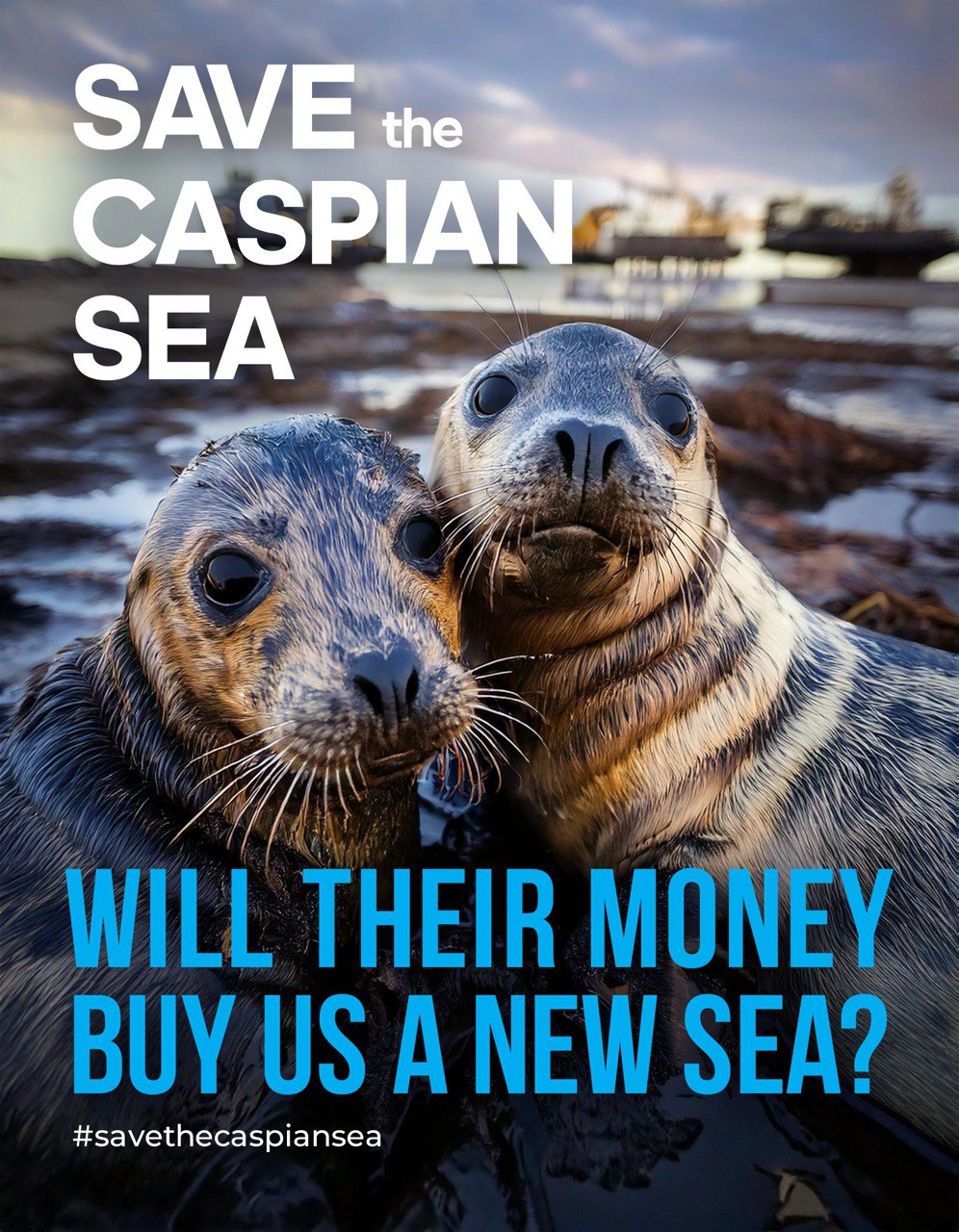Kazakh environmental activists, scientists, and thought leaders are calling on the international community to address the unfolding ecological crisis of the Caspian Sea with the launch of a new global movement, Save the Caspian Sea.
Once the largest enclosed inland body of water, supporting over 270 million people across Russia, Kazakhstan, Turkmenistan, Iran, and Azerbaijan, the Caspian Sea is now in peril. Water levels are dropping at an alarming rate of 70 centimeters per year, with parts of Kazakhstan already witnessing shoreline retreats of up to 18 kilometers. By the end of the century, the sea could shrink by another 18 meters, bringing catastrophic consequences to coastal communities, local economies, and ecosystems dependent on this vital resource. The crisis is already evident in the mass die-off of rare Caspian seals, with over 4,000 carcasses discovered in just the past two years, a grim indicator of the environmental disaster unfolding.
"Despite years of discussions, conferences, and isolated NGO efforts, the situation is worsening. The Caspian Sea is at a critical turning point, and the choices we make now will define its future. It’s time for all stakeholders—governments, industries, and communities—to come together in a coordinated effort to safeguard this unique and vital ecosystem," said Vadim Ni, environmental and climate law attorney, director of the Social and Environmental Fund, and founder of Save the Caspian Sea. "We are committed to fostering collaboration, transparency, and meaningful investments to ensure the Caspian Sea remains a source of life and prosperity for generations to come."
The movement draws strength from its global network of partners and supporters. Among them are Kate Watters of Crude Accountability, Galina Chernova of NGO Globus Centre for Environmental Law Initiative, and Tatyana Sedova from the Extractive Industries Transparency Initiative (EITI). These partners bring expertise in corporate accountability, biodiversity conservation, and transparent governance to the campaign. “We are leveraging global expertise and resources to address this crisis and demand justice, transparency, and preservation for one of the world’s most significant ecosystems,” said Kate Watters, Executive Director of Crude Accountability.
Speaking at the movement's launch event, Galina Chernova, a leading environmental expert and a key advocate for the campaign, emphasized the urgency of global action. “The Caspian Sea is not just a regional issue; it is a global crisis. What happens here affects ecosystems, economies, and people far beyond its shores. We are at a crossroads. This campaign is not just about saving water or wildlife—it’s about protecting livelihoods, cultural heritage, and the natural balance of our planet. Together, we can turn the tide.”
As part of its action plan, Save the Caspian Sea will focus on coordinating and promoting conservation research to inform sustainable policies and practices. The movement will also prioritize fundraising for restoration initiatives aimed at mitigating biodiversity loss and reversing environmental degradation. Additionally, it will organize international events and awareness campaigns to engage stakeholders and amplify the urgency of protecting the Caspian Sea. Finally, it seeks to develop partnerships with governments, NGOs, and corporations to foster collaborative solutions.
Save the Caspian Sea aims to engage millions worldwide through a global awareness campaign, amplified by the hashtag #SaveTheCaspian across social and traditional media platforms. By galvanizing public support, the movement seeks to pressure decision-makers into prioritizing urgent preservation efforts for this critical ecosystem.






